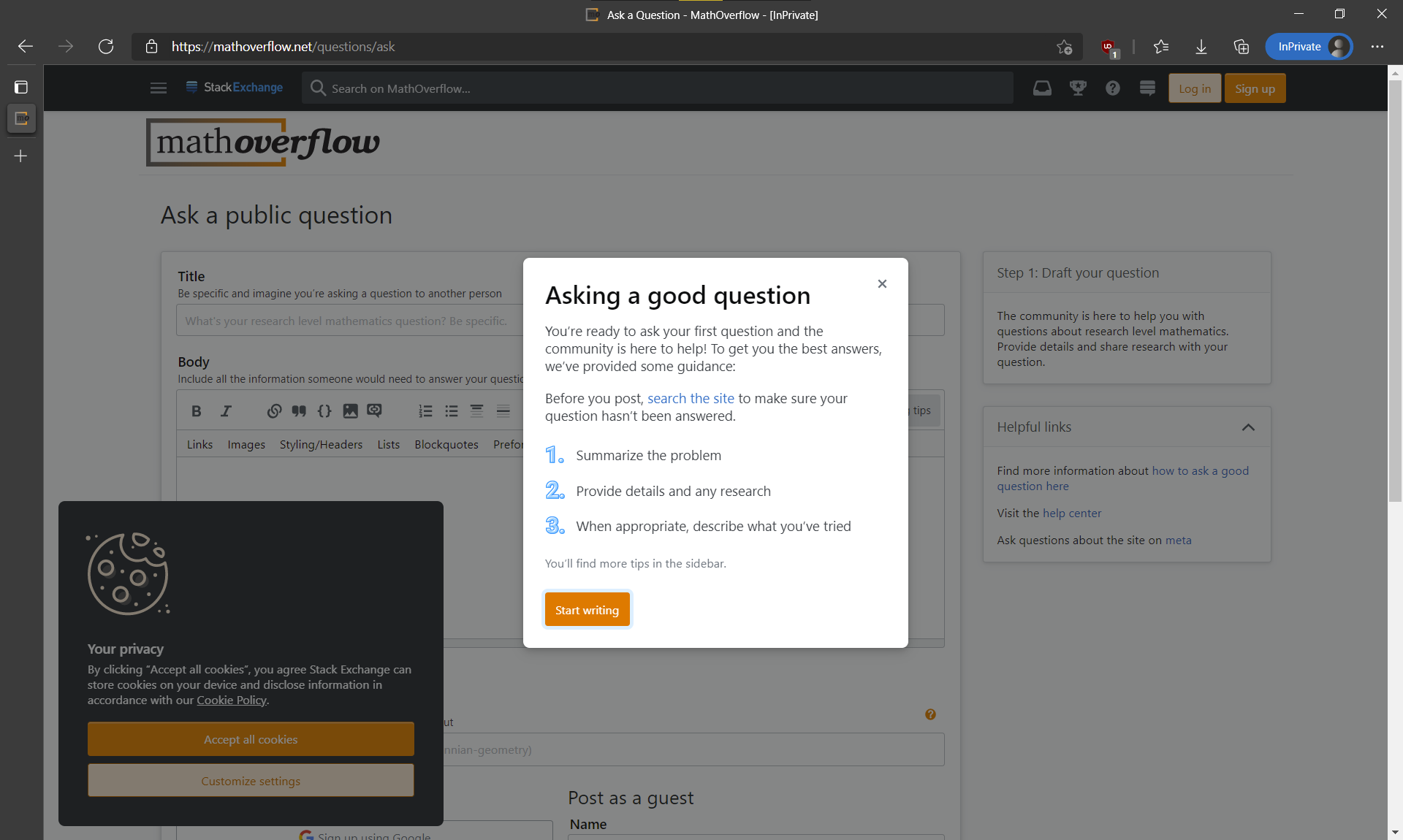Apologies if this has been addressed on Meta before (it's a little hard to know the right keywords to search for Meta questions with).
Question: Has there been any systematic attempt to try to figure out where the majority of new users asking off-topic questions are coming to MO from?
By "off-topic questions" I'm primarily referring to the intro college or even high school level questions, which are often straight from a textbook and are presumably homework questions. These regularly show up at the top of the new question feed, although they are always closed in short order.
And by "where are they coming from" I mean, do we think people are typing "math question answer site" into Google and then finding MO near the top of the search results? Or what?
As a point of contrast, I would suppose that most graduate students in math learn about MO from word of mouth (either from their advisor, or fellow grad students, et cetera). But this supposition is also just based on personal anecdata.

